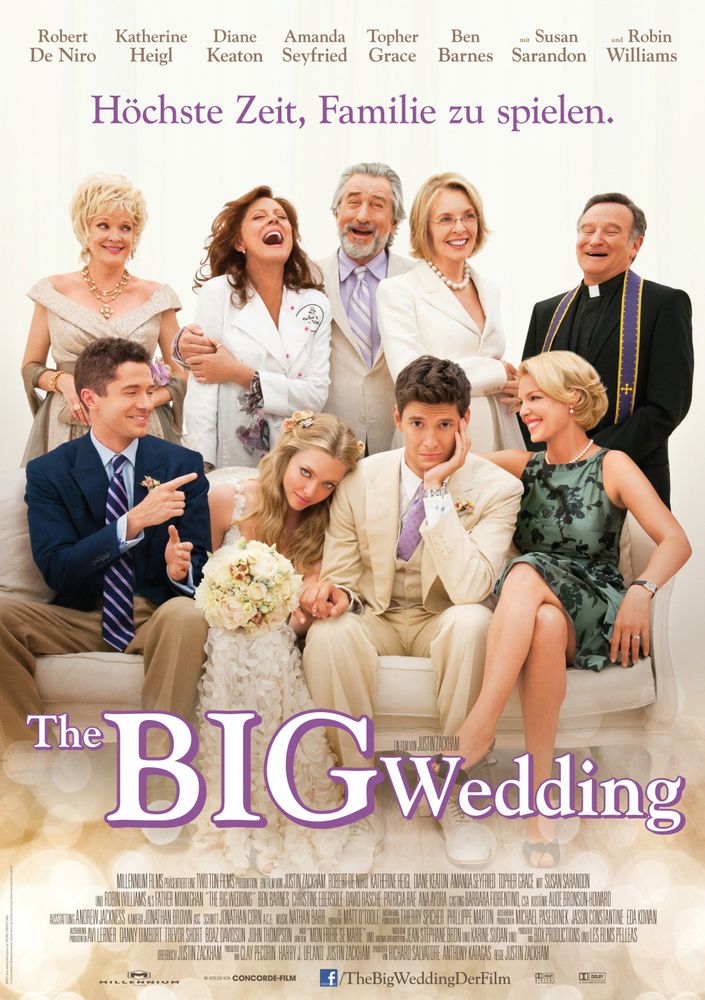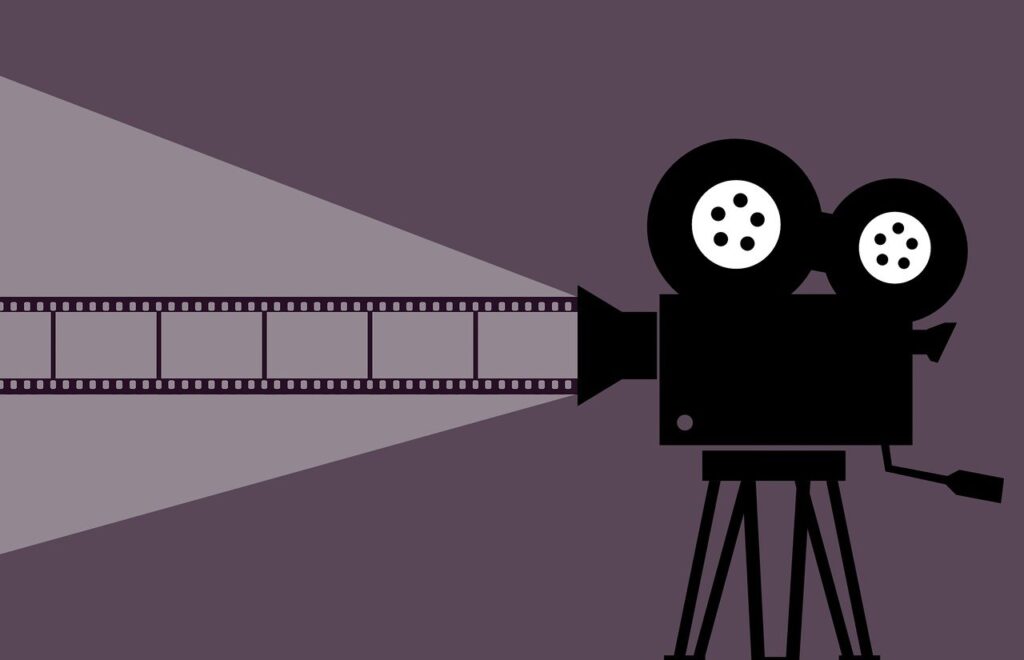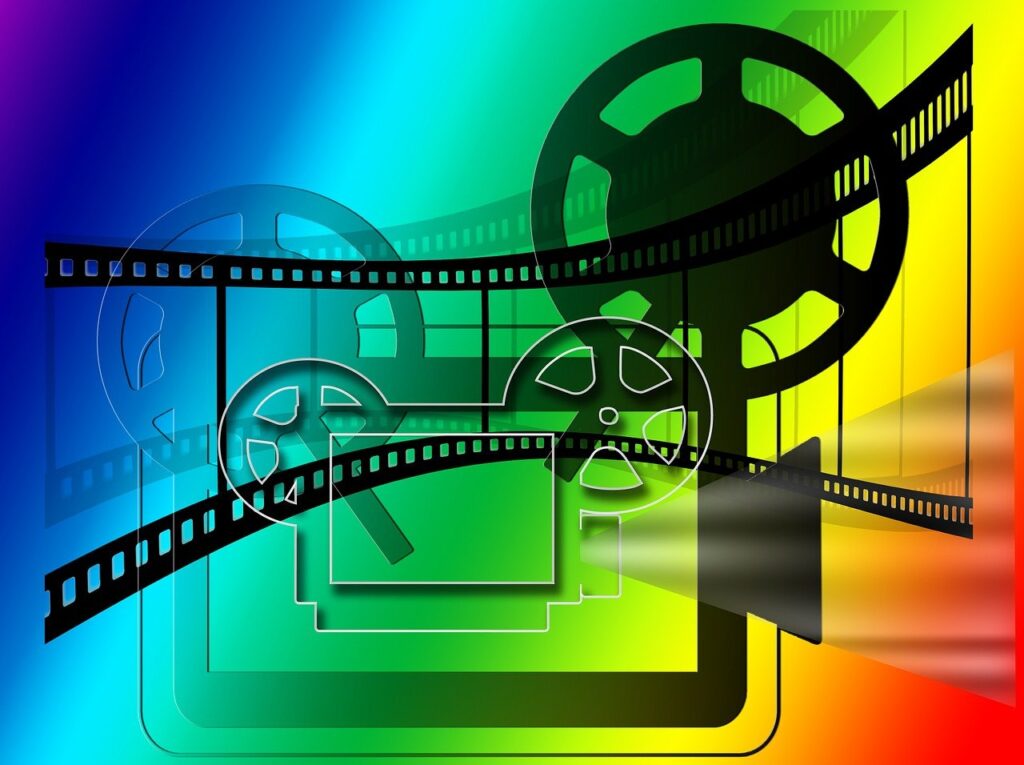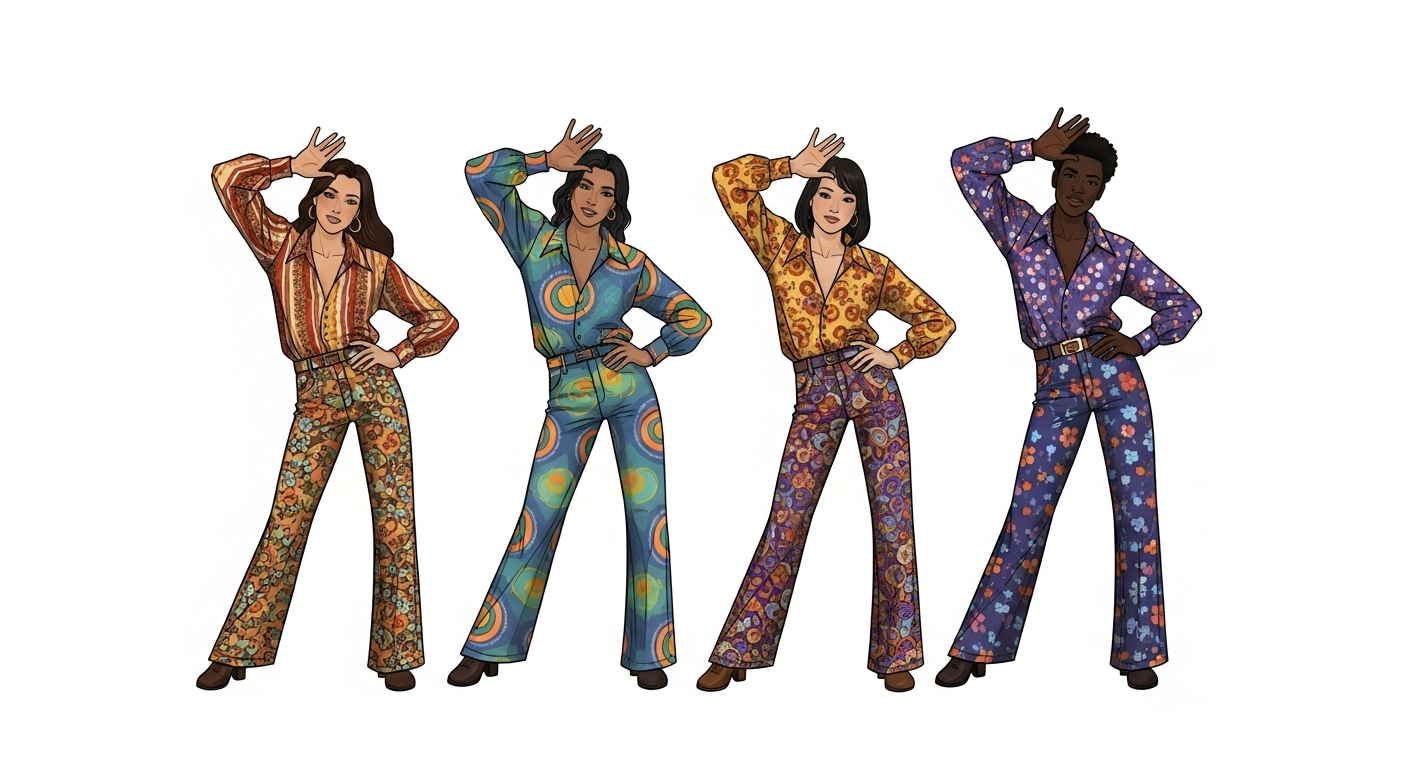Okay, rom-com stans, gather ’round! We all have those comfort movies we turn to when we need a good cry, a hearty laugh, or just some proof that love *might* actually be real. We’re talking ‘When Harry Met Sally,’ ‘Jerry Maguire,’ maybe even a little ‘Four Weddings and a Funeral’ for good measure. These are the classics, the ones that nailed the “romantic comedy” brief perfectly, making us believe in meet-cutes and happily-ever-afters, even when our own dating lives are… well, let’s just say *challenging*.
But for every timeless gem that makes our hearts swoon, there’s a whole universe of cinematic disasters out there. Movies so spectacularly bad, so devoid of actual romance or genuine humor, that you just have to wonder what everyone involved was thinking. We’re talking about those awkward, often cringe-inducing films that make you want to fast-forward straight to the credits, or better yet, just turn off the TV and re-watch ’10 Things I Hate About You’ for the zillionth time.
So, strap in, buttercups, because we’re about to take a deep dive into the absolute bottom of the rom-com barrel. We’ve rounded up a list of films that critics universally roasted, scoring less than a measly 10% on the Tomatometer – after *at least 20 reviews*, mind you! These aren’t just ‘not great’; these are the cinematic equivalents of a bad first date that ends with you faking an emergency call. Ready to find out which ‘love stories’ you should *definitely* avoid? Let’s get into it!
1. **Because I Said So (2007)**
Kicking off our parade of cinematic ‘nope’ is 2007’s ‘Because I Said So,’ which managed to scrape by with a truly dismal 3% on the Tomatometer. Yikes! The critics were pretty brutal, calling it “Overly reliant on caricatures and lacking any human insight,” and dubbing it an “unfunny, cliche-ridden mess.” Ouch. When a romantic comedy can’t even get the ‘funny’ part right, you know you’re in for a rough ride. It’s like showing up to a party expecting champagne and getting lukewarm tap water instead.
The film tries to pull us into the world of Daphne Wilder, played by the usually delightful Diane Keaton, who is described as the “proud mother of three women: Milly, Maggie, and Mae.” Daphne, in her infinite motherly wisdom (or perhaps, overbearing meddling), decides that her youngest daughter, Milly (Mandy Moore), needs a little *help* in the love department. And by help, we mean she places an ad online to find Milly the perfect man. Because nothing says ‘true love’ like a secret internet setup by your mom, right?
This premise, while attempting to be endearing, quickly devolves into a parade of “paper-thin characterizations” and plot points that feel like they were pulled straight from a ‘Rom-Com Tropes for Dummies’ handbook. Instead of genuine human connection or relatable struggles, we’re left with a narrative that leans heavily on exaggerated personalities, missing the mark entirely on what makes a romantic comedy actually *work*. It’s less a charming family saga and more a cautionary tale about parental interference gone spectacularly wrong.
And let’s be real, when Diane Keaton, Mandy Moore, Lauren Graham, and Piper Perabo are all in one movie, you’d expect at least *some* sparks to fly, *some* witty banter to land. But according to the critics, this movie felt like it was designed by a committee determined to hit every single rom-com cliché without any of the heart. It’s a prime example of how even a stellar cast can’t save a script that’s just… well, a mess.
Read more about: Get Ready to Feel It All: 14 Stars Who Delivered the Most Powerful Emotional Performances in Film and TV
2. **Down to You (2000)**
Next up, we’ve got ‘Down to You’ from the year 2000, another unfortunate soul clocking in at a meager 3% on the Tomatometer. The critics consensus pulls no punches, declaring it “ruined by a bland, by-the-numbers plot and an awful script.” That’s a double whammy, folks – both the story and the dialogue were apparently a total snooze. It’s like ordering a delicious pizza and getting a cardboard box with a whisper of sauce.
This early 2000s flick tries to whisk us away to New York City, following college coeds Al (Freddie Prinze Jr.) and Imogen (Julia Stiles). Al, conveniently, is the son of a celebrity chef, adding a dash of… something to the background. You’d think with Freddie Prinze Jr. and Julia Stiles, two of the era’s rom-com darlings, there’d be *some* charm, *some* chemistry, *something* to cling to. But alas, the consensus suggests otherwise.
The synopsis hints at typical college-age romantic entanglements, but the critics’ verdict suggests it got lost in a sea of generic plot points. A “by-the-numbers plot” implies a story so predictable it could have been generated by an algorithm, rather than crafted by human hands aiming for genuine emotion or clever twists. It’s the kind of film that fades from memory before the credits even finish rolling.
With Selma Blair and Shawn Hatosy also in the mix, the ensemble had potential. However, a “bland” story and an “awful script” are pretty tough hurdles to overcome, even for a cast of rising stars. ‘Down to You’ stands as a stark reminder that even the freshest faces can’t rescue a romantic comedy from its fundamental flaws when the writing just isn’t there.
Read more about: Beyond the Blockbuster Star: Meet the Incredible Family Behind Tom Hanks, From His Adventurous Siblings to His Supportive Parents!
3. **Serving Sara (2002)**
Oh, ‘Serving Sara’ (2002), how did you manage to score only 4%? The critics certainly weren’t shy about their disappointment, calling it “A romantic comedy that’s neither funny nor particularly romantic,” and dismissively labeling it a “forgettable time waster.” Harsh words, but sometimes, the truth hurts. This sounds like the kind of movie you accidentally stumble upon at 3 AM and then spend the next day trying to erase from your memory.
The premise involves Sara (Elizabeth Hurley) being “stunned” when she’s served divorce papers while in New York. We’re told she’s “not about to” accept it, implying some sort of fight or clever scheme to prevent the divorce from happening. With Matthew Perry (yes, *that* Matthew Perry) starring alongside Hurley, one might expect some of that signature comedic timing, but apparently, even Chandler Bing himself couldn’t save this ship from sinking.
Despite the potential for a battle-of-the-sexes romp or a clever legal comedy, the film seems to have fallen flat on both fronts. A romantic comedy that’s neither romantic nor funny is essentially just… a movie. And a forgettable one at that. It’s a betrayal of the genre, promising laughs and love and delivering neither.
Adding Bruce Campbell and a young Amy Adams to the mix only makes its failure feel more tragic. ‘Serving Sara’ serves as a glaring example of how a promising cast and an intriguing initial conflict can still lead to a spectacularly uninspired result when the execution is lacking. It’s the cinematic equivalent of a beautifully wrapped gift containing absolutely nothing.
Read more about: Tom Cruise at 61: An In-Depth Chronicle of the Action Star’s Enduring High-Octane Career and Unmatched Stardom
4. **Material Girls (2006)**
Prepare for some serious mid-2000s nostalgia (and disappointment) with ‘Material Girls’ from 2006, another film that landed itself a paltry 4% on the Tomatometer. The critics were unanimous in their disdain, stating it was “Plagued by paper-thin characterizations and a hackneyed script,” and noting that it “fails to live up to even the minimum standards of its genre.” That’s right, it couldn’t even meet the *minimum* standard. That’s a low bar to trip over!
Starring real-life sisters Hilary Duff and Haylie Duff as two “sibling cosmetics heiresses,” the film plunges them into a sudden crisis when a company scandal leaves them penniless. The setup promises a classic fish-out-of-water story, where spoiled rich girls are forced to grow up quickly. It’s a trope that can be genuinely entertaining if handled with wit and charm, but ‘Material Girls’ apparently missed the memo.
Instead of character growth or clever comedic situations, we’re stuck with “paper-thin characterizations.” This suggests that the Duff sisters’ characters never really evolved beyond their initial, stereotypical spoiled heiress personas. When you can predict every character’s reaction and every plot beat, the narrative becomes less of an adventure and more of a predictable slog.
Even the legendary Anjelica Huston and Brent Spiner couldn’t inject enough life into this script. ‘Material Girls’ feels like a missed opportunity to craft a fun, empowering story about sisterhood and overcoming adversity. Instead, it delivered a “hackneyed script” that left critics wishing they’d stayed home and just watched reruns of ‘Lizzie McGuire.’
Read more about: Denzel Washington at 69: A Resplendent Chronicle of Command, Craft, and Enduring Cultural Resonance
5. **A Little Bit of Heaven (2011)**
Moving on to 2011, we encounter ‘A Little Bit of Heaven,’ a film that managed to secure a dismal 4% on the Tomatometer. The critics’ consensus is pretty damning, declaring it “subjects viewers to a whole bunch of schmaltz – and strands Kate Hudson and Gael García Bernal in a fatally misguided film.” When a film is described as “fatally misguided,” you know you’re in for more than just a rough viewing experience; you’re heading for emotional quicksand.
The story centers on New Orleans ad executive Marley Corbett (Kate Hudson), who is characterized as a “free-spirited woman who embraces her easy sexuality, shuns commitment.” This sounds like the setup for a vibrant, independent female lead. However, the mention of “schmaltz” suggests that whatever free spirit Marley possesses, it quickly gets drowned in excessive sentimentality and melodrama rather than genuine emotional depth.
With Kate Hudson, known for her charismatic rom-com roles, and Gael García Bernal, a critically acclaimed actor, the pairing seemed to promise some spark. Yet, the critics imply they were entirely “stranded” by the material. This indicates that even their combined talents couldn’t elevate a script that was fundamentally flawed in its approach to romance and life-affirming themes.
‘A Little Bit of Heaven’ appears to have aimed for heartwarming and profound but landed squarely in the territory of saccharine and unbelievable. It’s a classic example of a film trying too hard to tug at heartstrings, ultimately coming off as cloying and inauthentic, leaving audiences with a feeling of discomfort rather than warmth.
Read more about: Beyond the Rhymes: Unpacking the Multifaceted Career and Enduring Impact of Common

6. **Good Luck Chuck (2007)**
Finally, rounding out our first batch of rom-com no-gos is ‘Good Luck Chuck’ from 2007, which scored a less-than-lucky 5% on the Tomatometer. The critics were not impressed, noting a “shortage of laughs and an undercurrent of mean-spiritedness undermine Good Luck Chuck, squandering a decent premise on gross-out humor and shopworn slapstick.” It seems like this one had a decent idea but completely fumbled the execution, leaning on the lowest common denominator instead of genuine wit.
The plot revolves around dentist Charlie Kagan (Dane Cook), who is “cursed since childhood” and therefore “cannot find the right woman.” The kicker? He learns that “each of” the women he dates finds their true love immediately after breaking up with him. This is a pretty clever, if slightly depressing, premise for a romantic comedy. You’d expect a comedic exploration of this unique predicament, right?
Instead, the film is accused of a “shortage of laughs” and an “undercurrent of mean-spiritedness.” This suggests that instead of embracing the humor and pathos of Charlie’s unusual curse, the movie veered into cynical territory, potentially making fun of its characters rather than inviting the audience to root for them. It’s a fine line to walk in comedy, and ‘Good Luck Chuck’ apparently stumbled badly.
Despite starring Dane Cook and Jessica Alba, two prominent names from the era, the film opted for “gross-out humor and shopworn slapstick” instead of smarter comedic choices. This kind of approach often alienates audiences looking for genuine romance and clever comedy, leaving them with an unsatisfying mix of unoriginal jokes and a feeling that the potential of the story was entirely wasted.
Alright, buckle up, because our journey into the cinematic wasteland of rom-coms is far from over! We’ve already cringed our way through some truly baffling attempts at love stories, but believe it or not, there’s more where that came from. We’re talking more awkward plots, characters so bland they make unsalted crackers seem exciting, and celebrity missteps that will leave you wondering if anyone actually *read* the script before signing on.
These next few films continue our mission to highlight the romantic comedies that totally missed the mark, proving that sometimes, even the biggest stars and most promising premises can’t save a movie from becoming an absolute flop. So, grab your comfort snacks, because we’re diving back into the bottom of the barrel!
Read more about: Richard Chamberlain: From ‘Dr. Kildare’ Heartthrob to ‘Miniseries King,’ A Comprehensive Retrospective of a Screen and Stage Icon.

7. **’Til There Was You (1997)**
First up in our second batch of cinematic ‘oopsies’ is 1997’s ”Til There Was You,’ which limped across the finish line with a paltry 5% on the Tomatometer. The critics were pretty blunt, calling it “Utterly bereft of romance or humor,” which, let’s be real, is like calling a pizza “utterly bereft of cheese or sauce.” It’s basically a betrayal of the entire romantic comedy genre!
The film attempts to tell the story of Gwen Moss, portrayed by Jeanne Tripplehorn, a writer who lands a gig penning a book about former child star Francesca Lanfield. Now, when you see a cast list that includes Jeanne Tripplehorn, Dylan McDermott, and none other than Sarah Jessica Parker and Jennifer Aniston in supporting roles, you’d probably expect *some* spark. Instead, what we got was critically dubbed a “singularly misguided attempt at romantic comedy.”
It’s truly wild to think about a film with such recognizable faces — especially Sarah Jessica Parker, who would later become a rom-com icon, and Jennifer Aniston, a TV darling — completely failing to deliver on the core tenets of the genre. It’s not just that it wasn’t good; it actively missed the entire point, offering neither genuine laughs nor believable romance. Talk about a wasted opportunity!
Ultimately, ”Til There Was You’ stands as a stark reminder that even a promising ensemble can’t rescue a film when the fundamental writing and direction are off-kilter. It’s the kind of movie that makes you scratch your head and wonder how so many talented people could end up in something so… bereft.
Read more about: Julianne Moore’s Unforgettable Journey: Unpacking the Illustrious Career of a Hollywood Icon

8. **Gigli (2003)**
Oh, boy. Brace yourselves, because next on our list is the infamous ‘Gigli’ from 2003, a film that secured a measly 6% on the Tomatometer and has since become a pop culture punchline. The critics were brutal, declaring it “Bizarre and clumsily plotted,” a definitive “mess,” and famously noting that its two megastars, Ben Affleck and Jennifer Lopez, “lack chemistry.” Oof, if that isn’t a red flag for a rom-com, what is?
The plot is where things really start to get… peculiar. Ben Affleck’s character, Gigli, is ordered to kidnap the “psychologically challenged younger brother of a powerful federal prosecutor.” Just pause for a second and try to picture how *that* premise translates into a romantic comedy. It sounds more like a mob thriller with a truly uncomfortable subplot, doesn’t it?
Despite being a vehicle for the then-power couple “Bennifer,” the film’s “bizarre” and “clumsily plotted” nature meant any potential for romance was completely overshadowed by an awkward and incoherent narrative. Critics couldn’t get past the sheer strangeness of it all, making it impossible to connect with any of the characters or their supposed love story. It was a train wreck in slow motion, and everyone was watching.
‘Gigli’ wasn’t just a flop; it was an event, a warning label for filmmakers about what happens when ambition collides with a truly misguided script and a lack of on-screen spark. It’s a film that lives in infamy, forever etched into the annals of Hollywood as one of the most spectacularly bad romantic comedies ever made. Sometimes, things are just a “mess,” and ‘Gigli’ proudly wears that title.
Read more about: The Casting Curse: 12 Actors Who Took On One Role That Forever Changed Their Hollywood Trajectory

9. **The Perfect Man (2005)**
Hitting our list with another disheartening 6% on the Tomatometer is 2005’s ‘The Perfect Man.’ Critics were less than impressed, lambasting it as “Preposterous and predictable,” delivering “few laughs,” and suffering from a “poorly paced sitcom script, cookie-cutter characters and contrived plotting.” That’s a whole lot of bad adjectives for one movie, folks!
The premise itself sounds like something out of a Saturday morning cartoon, or perhaps a particularly bland sitcom. Heather Locklear plays Jean, a mom who moves her two daughters every time she goes through a bad breakup. Her daughter Holly, played by Hilary Duff, fed up with the constant upheaval, decides to invent a secret admirer – “The Perfect Man” – for her mom. What could possibly go wrong when you’re literally building a fantasy man?
Unsurprisingly, this “preposterous” setup quickly devolves into a series of predictable events, leaving audiences with those dreaded “few laughs.” When characters are as generic as “cookie-cutter” implies, and the plot feels “contrived” at every turn, it’s impossible to invest in their journey. Even the combined star power of Hilary Duff and Heather Locklear couldn’t conjure up any genuine magic.
‘The Perfect Man’ really drives home the point that a rom-com needs more than just recognizable faces; it needs a script with heart, originality, and actual humor. Otherwise, you end up with a film that just feels like a stretched-out, uninspired episode of a show you’d rather fast-forward through.
Read more about: If You Call Yourself a Sci-Fi Fan, You *Need* to See These 15 Essential Movies Right Now!

10. **The Big Wedding (2013)**
Get ready for another all-star ensemble that couldn’t save a sinking ship, because 2013’s ‘The Big Wedding’ waltzes onto our list with a sad 7% on the Tomatometer. The critics’ consensus pretty much sums it up: “The Big Wedding’s all-star cast is stranded in a contrived, strained plot that features broad stabs at humor but few laughs.” When you have Robert De Niro, Diane Keaton, Susan Sarandon, and Katherine Heigl, you’d expect fireworks, right? Instead, we got a damp fizzle.
The central conflict revolves around Don (De Niro) and Ellie Griffin (Keaton), a long-divorced couple. However, when their adopted son’s ultraconservative biological mother decides to show up for the wedding, Don and Ellie are forced to pretend they’re still happily married. You can practically hear the sitcom-style misunderstandings queuing up, can’t you? This kind of “contrived” setup rarely leads to genuine emotion or comedy.
Despite the incredible talent gathered on screen, the film was criticized for its “strained plot” and its reliance on “broad stabs at humor.” It seems that instead of witty dialogue or clever situations, the movie opted for easy, obvious jokes that just didn’t land. It’s like watching legendary chefs try to make a gourmet meal with only expired ingredients – the effort is there, but the outcome is just… not good.
‘The Big Wedding’ is a prime example of how even a dream cast can’t compensate for a script that’s fundamentally flawed. It’s a real shame to see so much talent go to waste on a movie that struggled to deliver on the very basics of being a romantic comedy. Sometimes, even Hollywood heavyweights can get lost in a bad script.
Read more about: The Highest-Paid Cameos in Recent TV History: Unpacking Hollywood’s Priciest Surprise Appearances
11. **Playing for Keeps (2012)**
Next up, we have 2012’s ‘Playing for Keeps,’ which barely scraped by with a 6% on the Tomatometer. The critics were not pulling any punches with this one, calling it “Witless, unfocused, and arguably misogynistic,” before dismissing it as a “dispiriting, lowest-common-denominator Hollywood rom-com.” Yikes. That’s a pretty damning review for any film, let alone one trying to be a romantic comedy.
The film stars Gerard Butler as George Dryer, a former soccer star now struggling financially and trying to reconnect with his ex-wife and son. In an attempt to get his life back on track, he decides to coach his son’s soccer team. Sounds sweet, right? Well, apparently, this noble endeavor just attracts a horde of local “soccer moms” who, according to critics, are portrayed in a way that leads to accusations of misogyny.
With a cast that also includes Jessica Biel, Uma Thurman, and Catherine Zeta-Jones, you’d hope for something with a bit more sophistication. However, the critical consensus points to a film that is “witless” and “unfocused,” indicating that the narrative quickly goes off the rails, sacrificing genuine humor and character development for cheap gags and potentially offensive tropes. It’s a classic case of squandered potential.
‘Playing for Keeps’ serves as a stark reminder that a romantic comedy needs to be genuinely funny *and* respectful to its characters to work. When it falls into the trap of being “lowest-common-denominator” and “misogynistic,” it alienates audiences and critics alike, leaving behind a truly “dispiriting” viewing experience.
Read more about: Chameleons of the Silver Screen: Unpacking the Unparalleled Versatility of 14 Iconic Actors Across Genres

12. **The Hottie & the Nottie (2008)**
And finally, to cap off our list of cinematic misfires, we arrive at the notorious ‘The Hottie & the Nottie’ from 2008, a film that earned a truly abysmal 6% on the Tomatometer. The critical consensus for this one is legendary: “The Hottie and the Nottie is a crass, predictable, and ineptly staged gross-out comedy that serves little purpose beyond existing as another monument to Paris Hilton’s vanity.” Ouch. Talk about leaving nothing unsaid!
The plot, if you can call it that, centers on Nate Cooper (Joel David Moore), who’s obsessed with his elementary school crush, Cristabelle (Paris Hilton). He tracks her down, only to discover she comes with an inseparable best friend, June (Christine Lakin), the “nottie.” Nate then dedicates himself to finding June a suitor, believing that’s the only way he can get to Cristabelle. The premise itself is inherently problematic and ripe for exactly the kind of “crass” and “predictable” humor it delivered.
Critics slammed the film for its “ineptly staged gross-out comedy” and its clear focus on promoting its celebrity star. It became a poster child for vanity projects gone wrong, where the perceived star power overshadowed any attempt at a coherent, humorous, or even remotely romantic storyline. The film didn’t just miss the mark; it didn’t even aim for it.
‘The Hottie & the Nottie’ is more than just a bad movie; it’s a cultural artifact, a cautionary tale that stands as a testament to how *not* to make a romantic comedy. It’s a film that, according to the critics, literally had no purpose beyond existing to celebrate its lead actress, making it an unforgettable (for all the wrong reasons) entry into the pantheon of truly awful rom-coms.
Read more about: Officially the Worst: 15 Movies That Earn a Definitive 0/10
So, there you have it, folks! Our deep dive into the absolute bottom of the rom-com barrel is complete. We’ve witnessed films that tried and failed spectacularly, proving that even with big names and promising ideas, a movie can still crash and burn if it lacks heart, humor, or a decent script. These aren’t just forgettable; they’re the kind of films that make you appreciate the truly great rom-coms even more. They’re a reminder to choose your movie night wisely, because life’s too short for bad rom-coms. Stick to the classics, or at least anything with a Tomatometer score over 10%! You’ve been warned!










